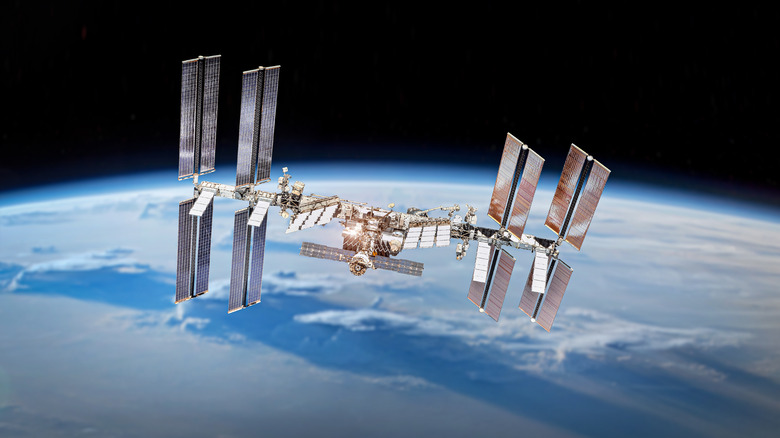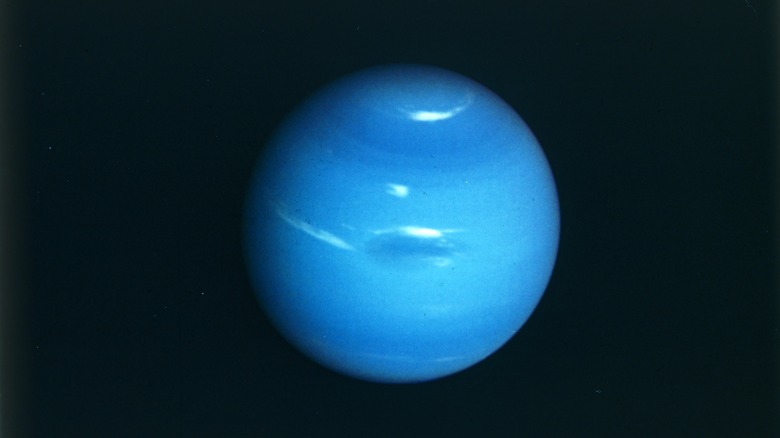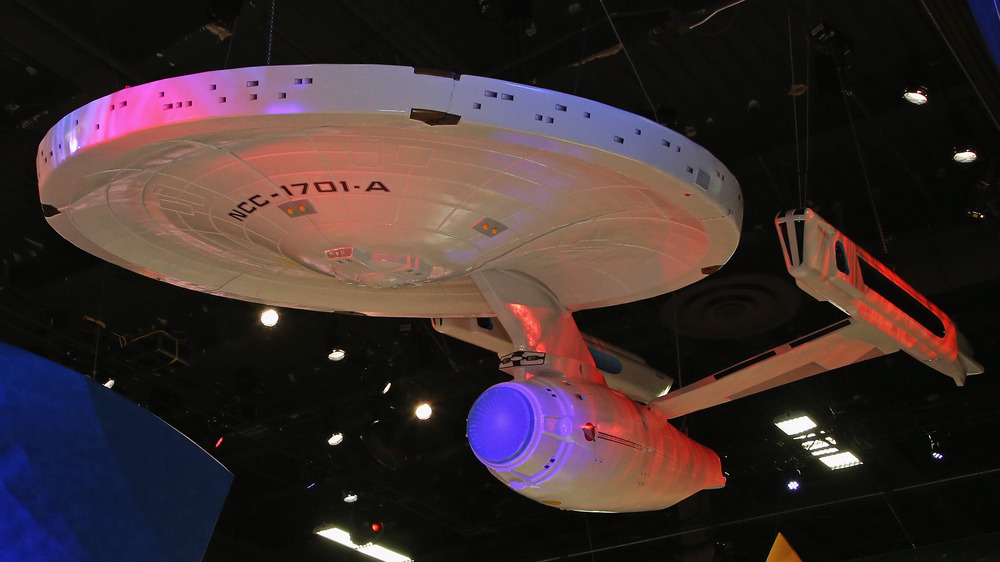
This Is How Long It Would Take To Drive To Space
Currently there is one way, and one way only, to get to space: Get into a vehicle atop a rocket and get launched up there. You can either do that as an employee of a government-funded space agency, or as a tourist aboard a private craft, but either way, the process is going to be time-consuming and expensive. Meanwhile, the space exploration community is hopeful that a space elevator will be operational by the middle of this century, according to NBC News. That technology would significantly reduce the time and cost of delivering various payloads into space.
But what if you could drive there? Of course, the very concept is impossible on multiple levels: roads don’t go straight up, for example, and cars aren’t built to withstand the harsh environment of space. But strictly from a mathematical standpoint, how long would it take to get to space if it were possible at regular highway driving speeds — that is, to drive to the arbitrary boundary that defines the end of the Earth’s atmosphere?
It would take about an hour to drive to space
Driving to space itself would be almost trivial and would barely qualify as an afternoon trip. As astronomer Fred Hoyle explained via Best Life, the boundary between the Earth’s atmosphere and space is an arbitrary one, but is generally considered to be about 60 miles up. From there, the math is easy: driving at 60 miles per hour, you could drive to space in one hour.
Getting to the nearest space “landmark,” so to speak, is going to require a bit more effort. The Moon, according to Science Focus, is roughly 250,000 miles away. That means the trip would take 4,166 hours, or nearly 174 days of driving without stopping.
And finally, and strictly for the sake of reference, there’s Earth’s celestial neighbor to which we’ve been sending spacecraft for decades, with a view toward one day sending a manned mission up there: Mars. The Red Planet is 218.7 million miles away, according to NASA. Driving there at 60 miles per hour, it would take over 3.6 million hours to reach Mars. That’s 151,875 days, or 415 years.

The Surprising Reason People Could Age Slower In Space

How Margaret Thatcher Barely Escaped An Assassination Attempt

The Truth About Helen Of Sparta, Menelaus, And Paris Of Troy's Love Triangle

Here's Why The US Military Once Burned Bibles

Here's What The CIA Knew About 9/11 Before The Attack

The Haunting Story Behind The Painting Of The Anguished Man

Myths About Alternative Energy You Can Stop Believing

Unique Words That Can't Be Translated Into English

Why The Kinks' Ray And Dave Davies Can't Stand Each Other

The Strange Reason Visitors Flock To Visit This Seaside Church























